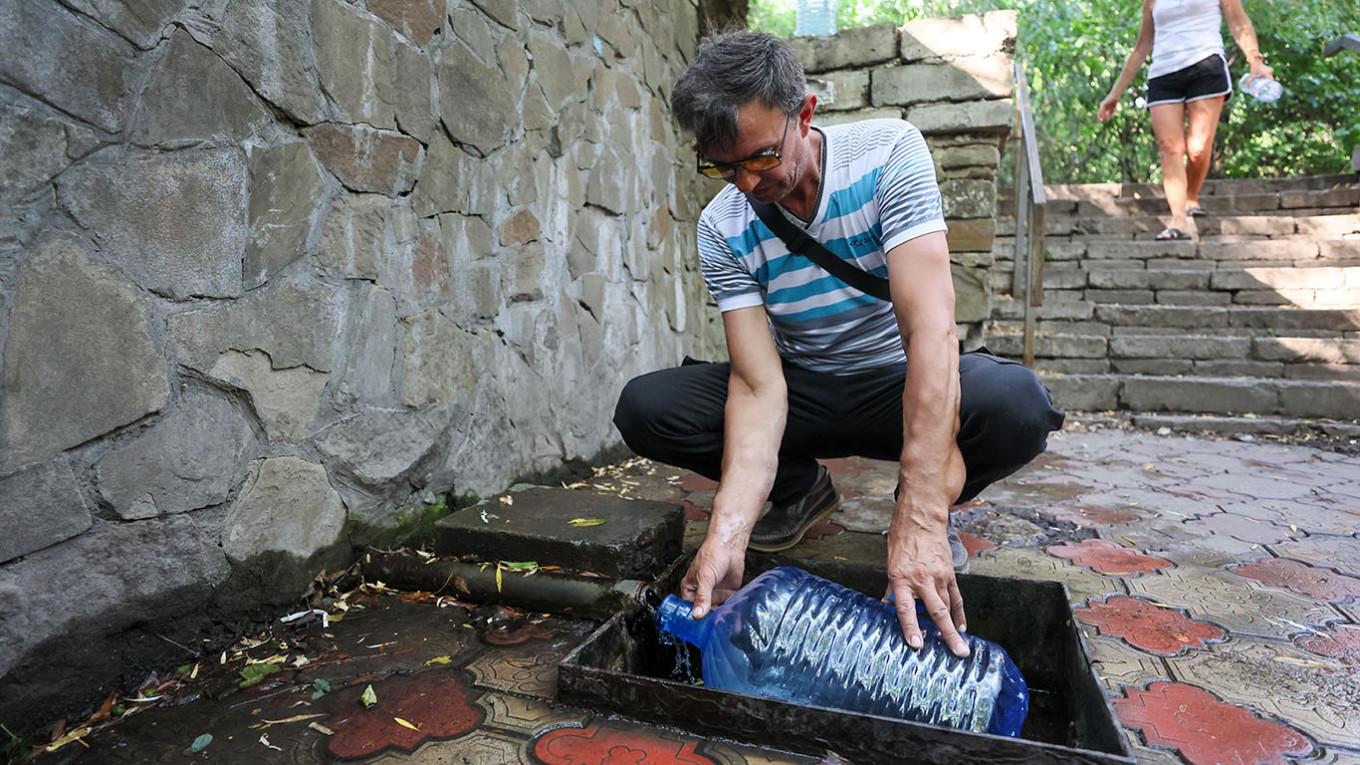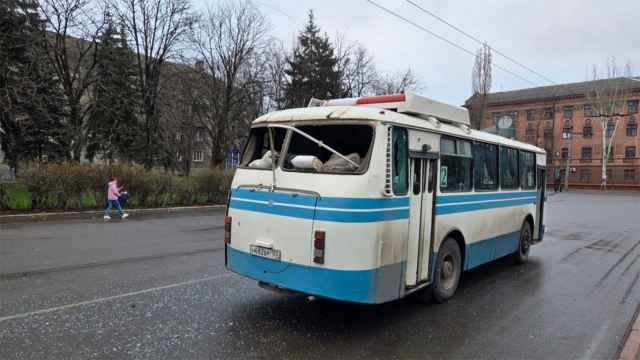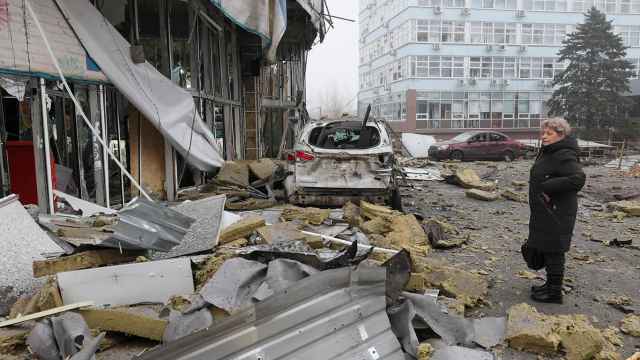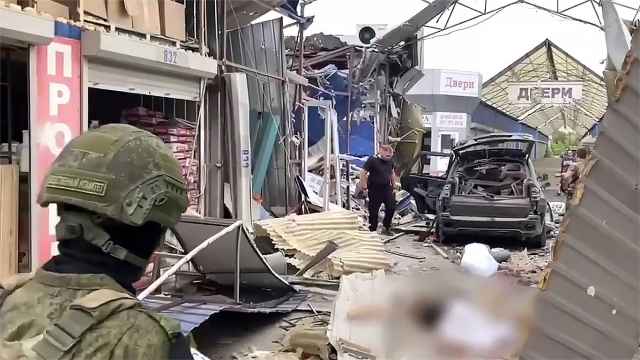“There is no life without water, Uncle Vova [President Vladimir Putin]. Help us so we can simply wash, drink and live.”
“Please give us the simplest miracle — water in our homes.”
Schoolchildren from Russian-annexed Donetsk in eastern Ukraine made these appeals in a video addressed to Putin that circulated online over the weekend.
Residents also asked Putin to “take personal control of the region’s water supply situation” and “punish” those responsible.
Problems with water access have plagued Donetsk residents since 2014, but the region's water crisis has become especially acute in recent weeks.
Russian-installed authorities introduced a strict schedule for water supply in Donetsk and the nearby city of Makiivka this month, with water available once every three days, for just four hours, from 5 to 9 p.m. In Mariupol, Khartsyzk and Ilovaisk, water is supplied once every two days, also for four hours.
Residents say the tap water, when available, is muddy, foul-smelling and unfit for drinking.
“People carry buckets down to the basement and take turns collecting this water — just enough to flush the toilet. You can’t cook with it, wash with it or even brush your teeth,” said a post showing yellow tap water published in Donetsk Vesti DNR, a pro-Kremlin group on the VKontakte social media site.
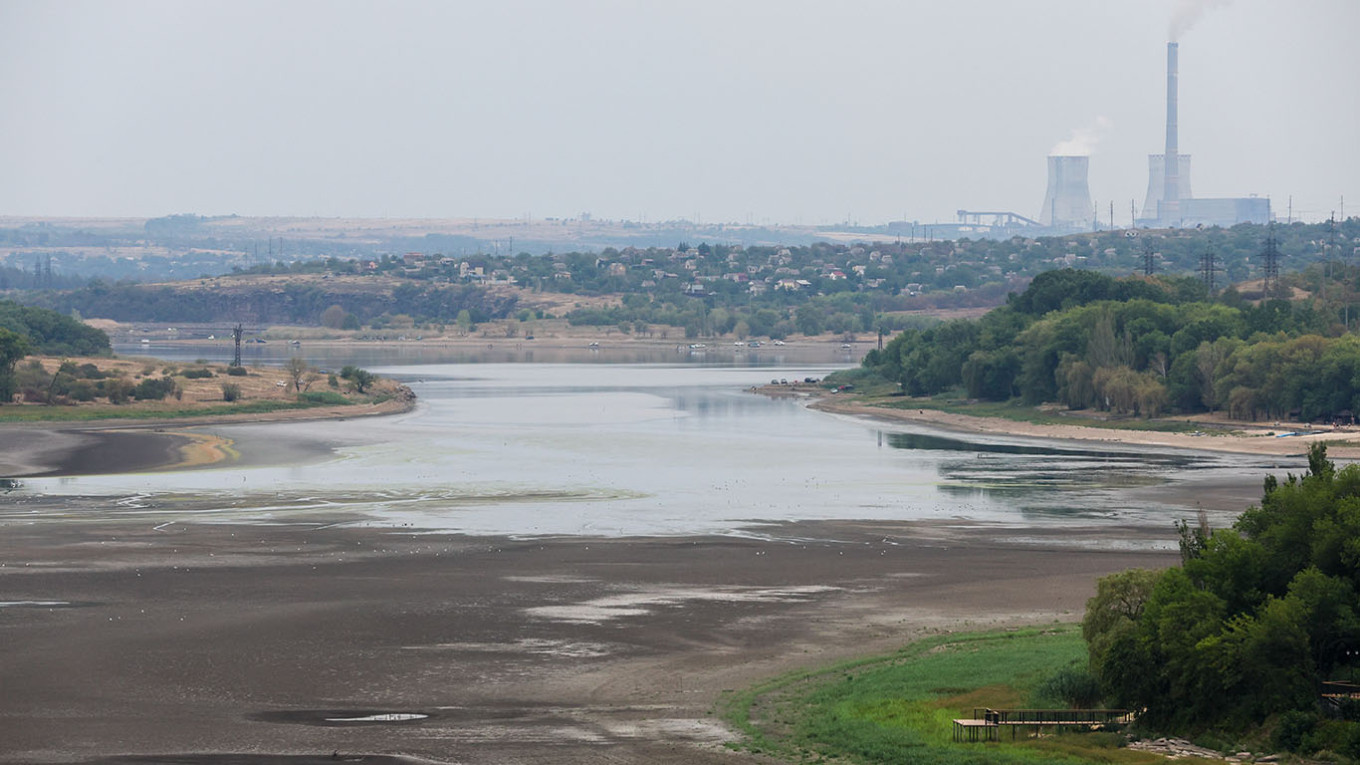
The same VKontakte group posted a video of murky brown water running from the tap on Monday.
“According to statements from the Sanitary and Epidemiological Service…the tap water in our cities ‘fully meets all quality standards’ and is officially classified as drinking water,” the post said ironically, adding that residents are “being charged for it as if it were actually drinkable.”
Local residents also complain that low water pressure means that water often does not reach above the second or third floors of apartment buildings.
Outside the official supply hours, residents are forced to rely on water delivery trucks with limited availability or pay steep prices for bottled water.
Local resident Maryana told the RTVI broadcaster that her family needs “two 40-liter canisters and about 20 plastic bottles” to survive for two days.
“The water truck arrives and we fill up. Our arms and legs are shaking, but we’re happy we managed to get some water,” she said of the process of collecting water.
Denis Pushilin, the Kremlin-installed head of the Donetsk region, last week even instructed the local government to cap bottled water prices at 3.5 rubles ($0.04) per liter, threatening businesses with inspections by the police and antitrust authorities if they violated the order.
On Tuesday, Pushilin said that 75 water trucks had arrived in Donetsk from Moscow, 13 tankers had been sent to Makiivka from the Moscow region and additional water trucks had been requested from the Kaliningrad region following a direct order from Putin.
"We continue the fight for water... We're doing everything we can to replenish its reserves: clearing riverbeds, deepening reservoir bottoms. We're also relocating floating pumping stations to increase water pressure in our residents' homes,” Pushilin said.
The region’s chronic water problems have significantly worsened since Russia’s full-scale invasion in 2022.
The BBC’s Russian Service analyzed satellite imagery of 10 local reservoirs and found that nine of them have significantly shrunk since the start of the war.
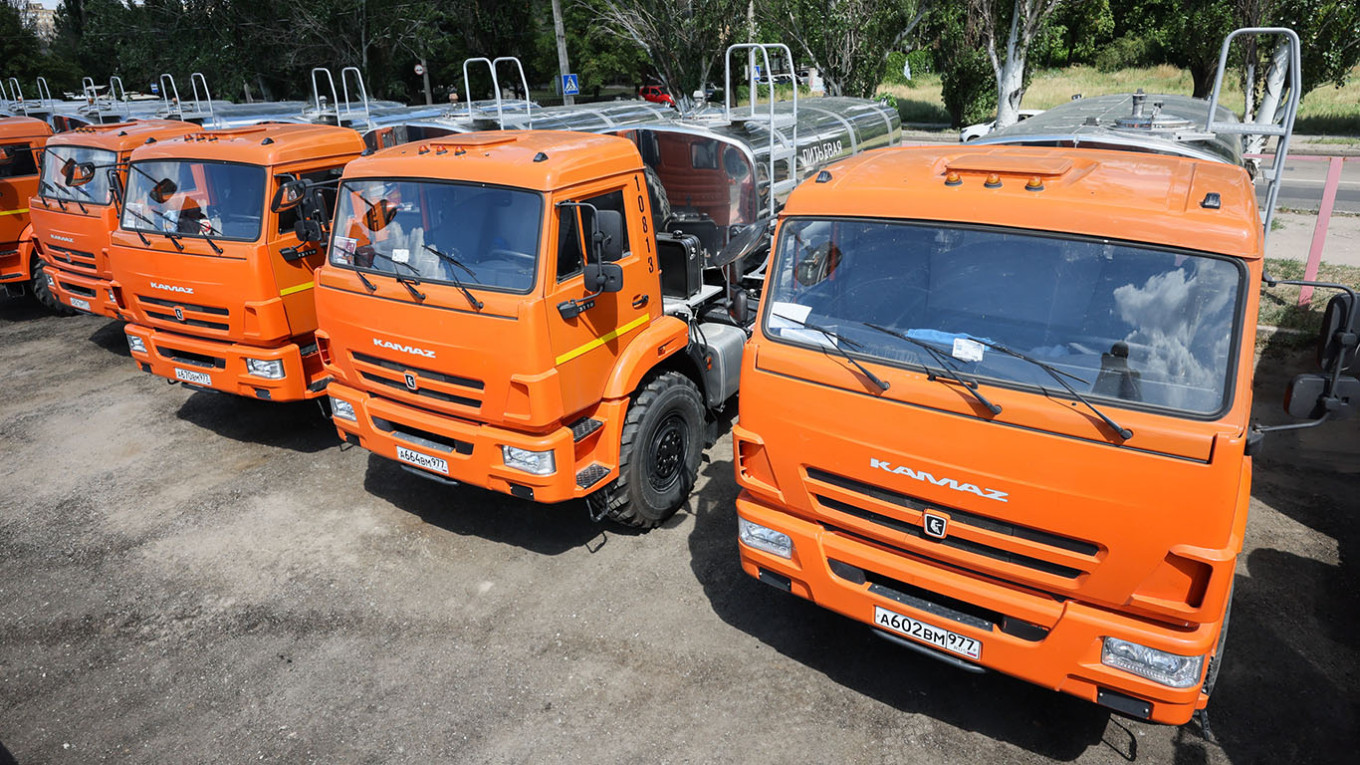
The current water crisis is partly the result of long-standing infrastructure problems, a former employee of Voda Donbassa (Water of Donbas), which oversees water supply in the Donetsk and Luhansk regions, told the BBC. Even before 2014, he said, the region’s water system was already about 80% worn out.
The war has further disrupted the region’s water supply.
Since the 1950s, the region has been supplied by the Siverskyi Donets-Donbas canal.
Ukraine did not block the canal in 2014, when Russia-backed separatists declared the self-proclaimed Donetsk and Luhansk People’s Republics. But its infrastructure, partially destroyed during the fighting after Russia’s full-scale invasion 2022, has remained under Kyiv’s control and the supply to the occupied regions stopped.
A new waterway built by Moscow in just four months in 2023, the Don-Donbas canal, supplies the region with only 25-30% of the water it needs, Kremlin-installed authorities admit.
The Don-Donbas canal’s construction was overseen by former Deputy Defense Minister Timur Ivanov, who was convicted for allegedly taking bribes worth more than 150 million rubles ($1.82 million) from a co-founder of Olimpsitistroy, a company involved in building the canal.
Pro-Kremlin Telegram channels said the situation is “now worse” than it was before the war.
Meanwhile, in their appeal to Putin, Donetsk residents asked the president to “launch an investigation into the actions — and inaction — of local authorities.”
“We're not just asking — we're crying out. We've been deprived of the most basic right: access to water,” they said.
A Message from The Moscow Times:
Dear readers,
We are facing unprecedented challenges. Russia's Prosecutor General's Office has designated The Moscow Times as an "undesirable" organization, criminalizing our work and putting our staff at risk of prosecution. This follows our earlier unjust labeling as a "foreign agent."
These actions are direct attempts to silence independent journalism in Russia. The authorities claim our work "discredits the decisions of the Russian leadership." We see things differently: we strive to provide accurate, unbiased reporting on Russia.
We, the journalists of The Moscow Times, refuse to be silenced. But to continue our work, we need your help.
Your support, no matter how small, makes a world of difference. If you can, please support us monthly starting from just $2. It's quick to set up, and every contribution makes a significant impact.
By supporting The Moscow Times, you're defending open, independent journalism in the face of repression. Thank you for standing with us.
Remind me later.



